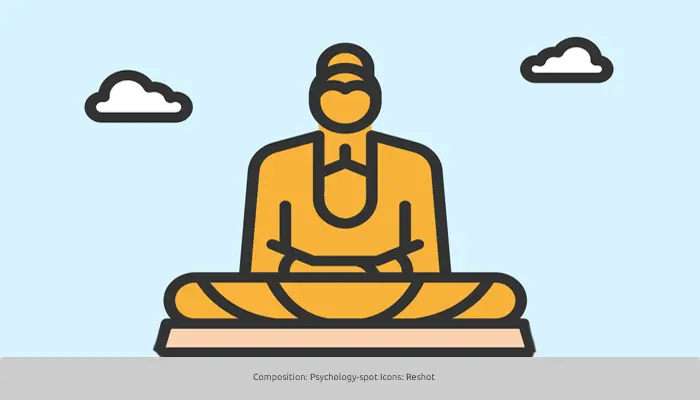
A disciple and his teacher walked through the forest. The disciple was disturbed by the fact that his mind was constantly restless, he could not stop thinking. He worried about not reaching enlightenment.
However, he was also embarrassed to admit it, so he asked his teacher indirectly:
“Why are the minds of most people restless and only a few have a quiet mind? What can be done to quiet the mind?”
The teacher looked at the disciple, smiled and said:
“I’ll tell you a story. An elephant was standing picking leaves from a tree. A small bee flew by and buzzed near his ear. The elephant pulled her away with her long ears, but the bee returned. The elephant moved her away once more by moving its ears.
The situation was repeated several times. Then the elephant, very annoyed by the buzzing of the bee, asked him:
“Why are you so restless and make so much noise? Why can’t you stand still on a branch and stop chasing me?”
The bee replied:
“I am very sensitive to some odors, sudden movements and vibrations. I can’t do anything to avoid it, because they indicate a danger of attack for the hive and stimulate our defensive instinct. It is you who is irritating me. If you stay still, I will calm down too.”
In this tale, the elephant is our mind and the bee represents our thoughts. In fact, on many occasions we behave like the elephant, allowing our habits of thought and attitudes to take us away serenity and inner peace.
Do you have a locus of control external or internal?
We are a society with an eye constantly focused on the outside, which looks very little inside. As a result, it is common for us to develop what in Psychology is known as the “locus of control external”.
Those who have a locus of control external attribute their successes and failures to external causes, blame the system, their parents, the economic situation… They are people who are in continuous struggle with the world and think that the universe conspires against them. But as that battle is lost before fighting it, as a result they often experience a deep sense of lack of control that often plunges them into anxiety and depression. With the passage of time, these people become reactive, like the elephant of the story, becoming puppets of the circumstances.
Obviously, circumstances play a role in our lives, we cannot ignore them, but if we develop a locus of control internal, instead of just getting angry and sad when things go wrong, we will ask ourselves what we can do to make them better. The world does not have anything against us, and there is no need to fight against what happens, understanding the fight as the denial of the facts. On the contrary, we must practice the radical acceptance, developing a locus of control internals that allows us to focus on changing what we can change. That change will generate a very positive feeling of empowerment.
Of course, developing a locus of control internal also means taking responsibility for our successes and failures. It means that, instead of complaining because the bee buzzes around us, we must ask ourselves what we are doing to provoke that situation and, above all, what we can do to change it in our favor.
How to move from catastrophic thinking to calm mind?
At the base of the locus of control are our habits of thought, so it is vital that we pay more attention to them. Every situation generates a series of thoughts that end up aggravating or tempering our vision of what happens. No fact is objective, we always see the world through our subjectivity.
Therefore, it is not simply the facts that generate emotional distress but the interpretation we make of them and the importance that we confer them.
Like the elephant in the tale, it is important to understand that often the problem does not arise from the original situation but from our thoughts, which impel us to respond inadequately. Faced with an unpleasant situation, our catastrophic thoughts run wild, they become a snowball that rolls without control down the mountain, generating chaos and negative emotions that immerse us in a vicious circle from which it is difficult to exit.
At that point, trying not to think to cut that flow of ideas is totally counterproductive because it will only generate a rebound effect that increases frustration. Instead, we must learn to accept that flow of negative concerns and emotions, until we can assume a detached posture, as if that inner dialogue were not ours. When the inner dialogue stops bothering us, we will have overcome it and we will be ready to act consciously.
A very effective technique to master this dialogue is to unfold mentally and take a little time to refute those thoughts that scare us, generate anger or stress. Basically, it is about becoming a “Devil’s Advocate” looking for arguments to refute your own ideas and subtract drama. In this way you diminish their emotional impact and take control of the situation developing a calm mind even in the middle of the storm.
Therefore, from now on, whenever you have to face a disappointing, stressful or frustrating situation, ask yourself which part of you is behaving like the elephant, which part of you is fighting against the world. Are you attracting that annoying bee with your thoughts and behaviors? You are likely to discover that, by changing some of your thoughts or attitudes, you will be able to deal better with that problem and lessen its emotional impact.



